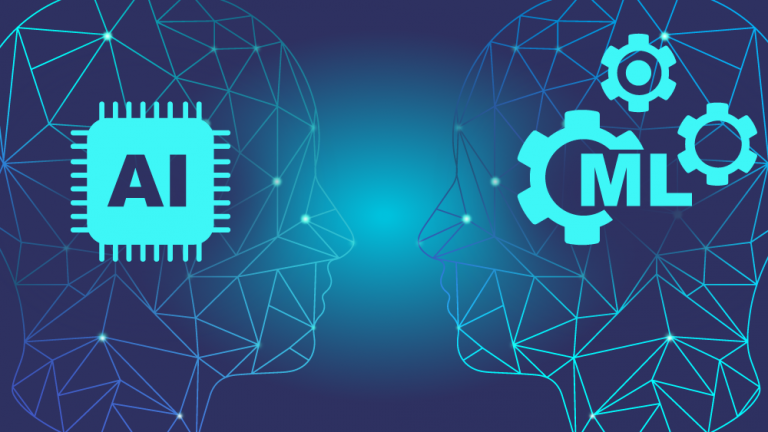
By Enric Gibert – Feb. 24, 2022
Although the concepts of Artificial Intelligence (AI) and Machine Learning (ML) are used interchangeably, they are not the same.
Artificial Intelligence (AI) refers to the techniques and methods to demonstrate intelligence by machines, as opposed to the natural intelligence demonstrated by humans (supposedly ;-)). The field of AI was theorized in the 40s and 50s of last century. At a very high level, a machine would be considered intelligent if one interacted with it and could not differentiate whether machine replies were provided by another human sitting at the other side of the machine or by the machine itself. In other words, answers by a human and by a machine could not be distinguished.
AI is a very wide field that includes many areas such as expert systems, search algorithms, and Machine Learning (ML), among others.
Large knowledge-based databases such as expert systems consisting of a set of rules coded by humans is an example of AI. A toy expert system on vegetables can contain rules like “if round, green and size between 0.5 cm and 1.5 cm, then it is a pea”. However, one can imagine larger expert systems containing thousands of complex rules. Note that in this case, machines do not learn, as all knowledge is introduced (coded) by humans based on its expertise. Such systems seem intelligent, as they provide sound answers to specific questions. These expert systems can be equipped with inference algorithms to derive complex rules that are beyond the obvious human-coded rules. In this sense, inferencing is a first step towards machine learning.
Another AI area is search algorithms such as genetic algorithms, backtracking algorithms (in its depth-first, breadth-first or best-first versions such as A* search algorithms), or hill climbing. These algorithms try to find optimal solutions by exploring a wide range of potential candidate solutions. A chess game machine needs to decide what the best move is based on the current chessboard distribution and potential future moves by itself and by the opponent. The search space is humongous as the algorithm needs to evaluate and score many potential moves (“what if I move e4 – pawn to E4x -, the opponent moves e5 next – pawn E5 -, then I move NC3 – knight to C3 -, …” or “what if I move e4, the opponent moves e5 next, then I move BC4, …”) and chose the best one. The size of the search space depends on how deep (how many future movements) are considered. In this case, machines do not learn either, as they “simply” search for potential solutions that are built on-the-fly, but no knowledge or learning is retained or stored for future searches.
Machine Learning (ML) is the AI area in which machines automatically extract knowledge from data and experience that can be reused later to take decisions or propose predictions for new unseen situations. ML is being widely used in image recognition, speech recognition, web search algorithms, email filtering techniques, mating algorithms, … Regression analysis, artificial neural networks (and its more recent deep learning variants), support-vector machines and Bayesian networks, among others, are different ML techniques. In medical image recognition, for example, a deep neural network can be trained to early diagnose a particular neuro-degenerative disease using thousands of brain images. Once trained, the model can be used to predict whether new patients are developing that disease.
Evidently, sophisticated AI systems are hybrid systems that contain techniques from different areas. An algorithm for playing chess can contain human-typed rules (the most common chess openings, for instance), advanced backtracking search algorithms to decide the next move and a ML model to adapt the scoring function of the search algorithms based on previous actions by the opponent.
Since ML is the area of AI that is receiving more attention lately, these terms are often confused. But being ML a subset of AI, we can say that Artificial Intelligence is not Machine Learning, but Machine Learning is Artificial Intelligence.
Stay tuned for future short posts on Artificial Intelligence and Machine Learning.
